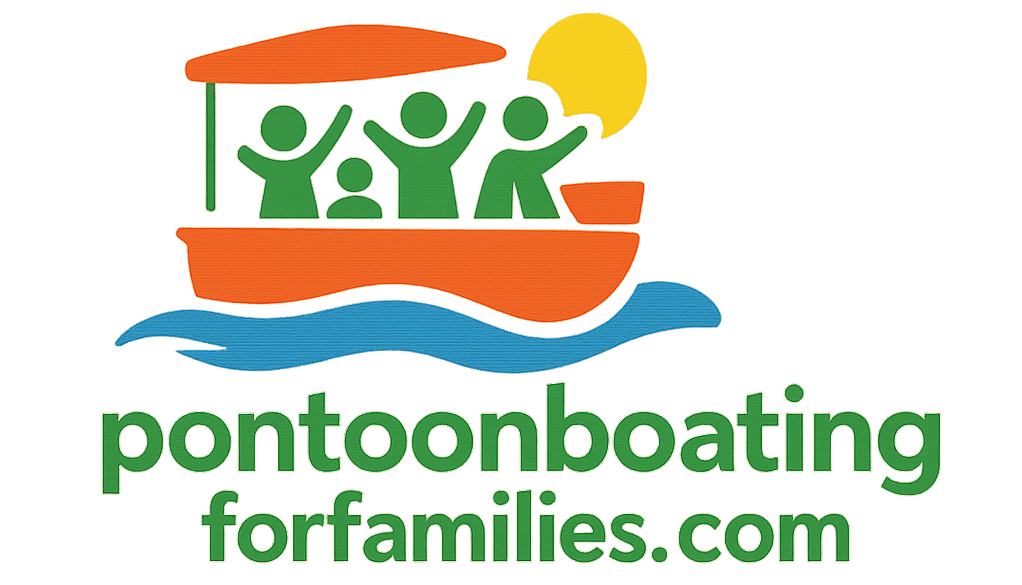Why Insurance Matters

Pontoon boats are growing in popularity among families, anglers, and recreational boaters. But while they provide fun and freedom on the water, they also represent a significant financial investment. Insurance protects your boat from accidents, theft, storms, and liability issues – ensuring your family can enjoy boating without financial risk.
Do You Really Need Pontoon Boat Insurance?
While not all states legally require pontoon insurance, many marinas, docks, and lenders do. Even when it isn’t mandatory, coverage is highly recommended. Without it, owners risk:
– Costly out-of-pocket repairs
– Liability lawsuits after accidents
– Loss of the boat from theft or damage
Think of insurance as essential protection for your boating lifestyle.
Importance of Pontoon Insurance
Pontoon boats are growing in popularity among families, anglers, and recreational boaters. But while they provide fun and freedom on the water, they also represent a significant financial investment. Insurance protects your boat from accidents, theft, storms, and liability issues – ensuring your family can enjoy boating without financial risk.
Types of Pontoon Insurance Coverage
Pontoon boat insurance can be customized depending on how you use your boat. Common coverage options include:
– Liability coverage for damages and injuries to others.
– Collision coverage for accidents involving your pontoon.
– Comprehensive coverage for non-collision risks like theft or storms.
– Medical payments to cover onboard injuries.
– On-water towing for breakdown assistance.
– Accessory coverage for extras like electronics, slides, or grills.
Average Cost of Pontoon Boat Insurance in 2025
On average, pontoon boat insurance costs this year between $200–$600 annually. Premiums depend on:
– Boat size and value
– Engine horsepower
– Location and waterways
– Owner’s boating history
Owners of larger pontoons with higher horsepower engines will typically pay more, while safe, experienced boaters with bundled policies can save.
How to Save Money on Pontoon Insurance
Insurance doesn’t have to break the bank. Families can lower costs by:
– Bundling policies with home/auto coverage
– Taking certified boating safety courses
– Installing anti-theft devices or GPS trackers
– Choosing seasonal lay-up coverage for off-season months
– Comparing quotes from multiple providers
Common Claims and How to Avoid Them
Understanding common claims can help you take preventive measures. Typical claims include:
- Collision Damage: Often due to docking mishaps or other boats.
- Theft: Pontoon boats can be attractive targets for thieves.
- Weather Damage: Storms and hurricanes can cause significant damage.
- Liability Claims: Injuries to passengers or other boaters.
To avoid these, ensure proper docking techniques, invest in security systems, watch weather forecasts, and follow safety protocols.
Steps to File a Pontoon Insurance Claim
Filing a claim can be a straightforward process if you know the steps:
- Document the Damage: Take photos and notes immediately after the incident.
- Contact Your Insurer: Report the incident as soon as possible.
- Provide Necessary Information: Be ready to provide details like the date, time, location, and a description of the incident.
- Get an Estimate: Your insurer may send an adjuster to assess the damage.
- Repair and Reimbursement: Once approved, you can go ahead with repairs and get reimbursed.
Tips for Choosing the Right Pontoon Insurance
Selecting the right insurance involves considering several factors:
- Coverage Needs: Assess what types of coverage you need based on your usage.
- Reputation of the Insurer: Research customer reviews and ratings.
- Discounts and Bundles: Look for available discounts and bundling options.
- Customer Service: Ensure the insurer has good customer service and claims support.
Real-Life Stories: Why Pontoon Boat Insurance Matters
Sharing real-life stories can highlight the importance of insurance:
- The Storm Survivor: A family’s pontoon was saved from a hurricane thanks to comprehensive coverage.
- The Theft Recovery: How insurance helped a boater recover from a stolen pontoon.
- The Liability Lifesaver: A boater avoided financial ruin after an accident with another vessel.
Environmental Considerations and Insurance
With growing environmental concerns, some insurers offer coverage for eco-friendly upgrades:
- Fuel Spill Liability: Coverage for accidental fuel spills.
- Eco-Friendly Discounts: Discounts for using environmentally friendly equipment.
- Recycling and Disposal: Coverage for proper disposal of old parts and materials.
Best Insurance Companies for Pontoon Boats
Not all insurers offer equal coverage for pontoons. Top providers include:
- Progressive – Flexible coverage and strong discounts
- GEICO Marine – Great accessory and equipment coverage
- State Farm – Best for policy bundling
- Allstate – Customizable plans with accident forgiveness
- BoatUS/Travelers – Boating experts with 24/7 towing options 6.
Understanding Policy Exclusions and Limitations
It’s crucial to know what your insurance policy does not cover. Common exclusions and limitations include:
- Wear and Tear: Regular maintenance issues are typically not covered.
- Negligence: Damage resulting from improper use or lack of maintenance.
- Commercial Use: Policies for personal use may not cover commercial activities.
- Racing: Taking part in races or speed contests may void coverage.
- Unapproved Modifications: Changes to the boat that are not reported to the insurer.

Understanding these exclusions can help you avoid unexpected surprises and ensure you have the right coverage for your needs.
FAQ’s About Pontoon Boat Insurance
Is pontoon boat insurance required by law? Not always, but lenders and marinas may require it.
Does homeowners insurance cover pontoons? Usually only small boats with limited horsepower. Larger pontoons need separate policies.
Does insurance cover tubing or fishing? Recreational use is usually covered, but rentals or commercial use require specialized policies.
Seasonal Considerations for Pontoon Boat Insurance
Pontoon boats are often used seasonally, and this can affect your insurance needs. Consider the following:
- Winter Storage: Ensure your policy covers potential damage during off-season storage. On the contrary, many insurers will allow seasonal lay-up policies, if desired.

- Seasonal Lay-Up: Some insurers offer lay-up policies that reduce coverage (and cost) during months when the boat is not in use.
- Pre-Season Preparation: Check your policy for coverage on pre-season maintenance and inspections to ensure your boat is ready for the water.
The Bottom Line: Secure the Right Pontoon Boat Insurance Coverage
Pontoon boat insurance is not just a legal formality but a crucial aspect of responsible boating…it is more than just a policy – it’s peace of mind, protects your investment and allows you to enjoy your time on the water without worries.
Whether you’re navigating quiet lakes or hosting family celebrations onboard, the right insurance ensures your investment and passengers are safe. By understanding the different types of coverage, common claims, and how to choose the right policy, you can make informed decisions that best suit your needs.
Don’t wait for an accident to highlight the importance of coverage.
**Here’s a little transparency: Our website contains affiliate links. This means if you click and make a purchase, we may receive a small commission. Don’t worry, there’s no extra cost to you. It’s a simple way you can support our mission to bring you quality pontoon boating content.
